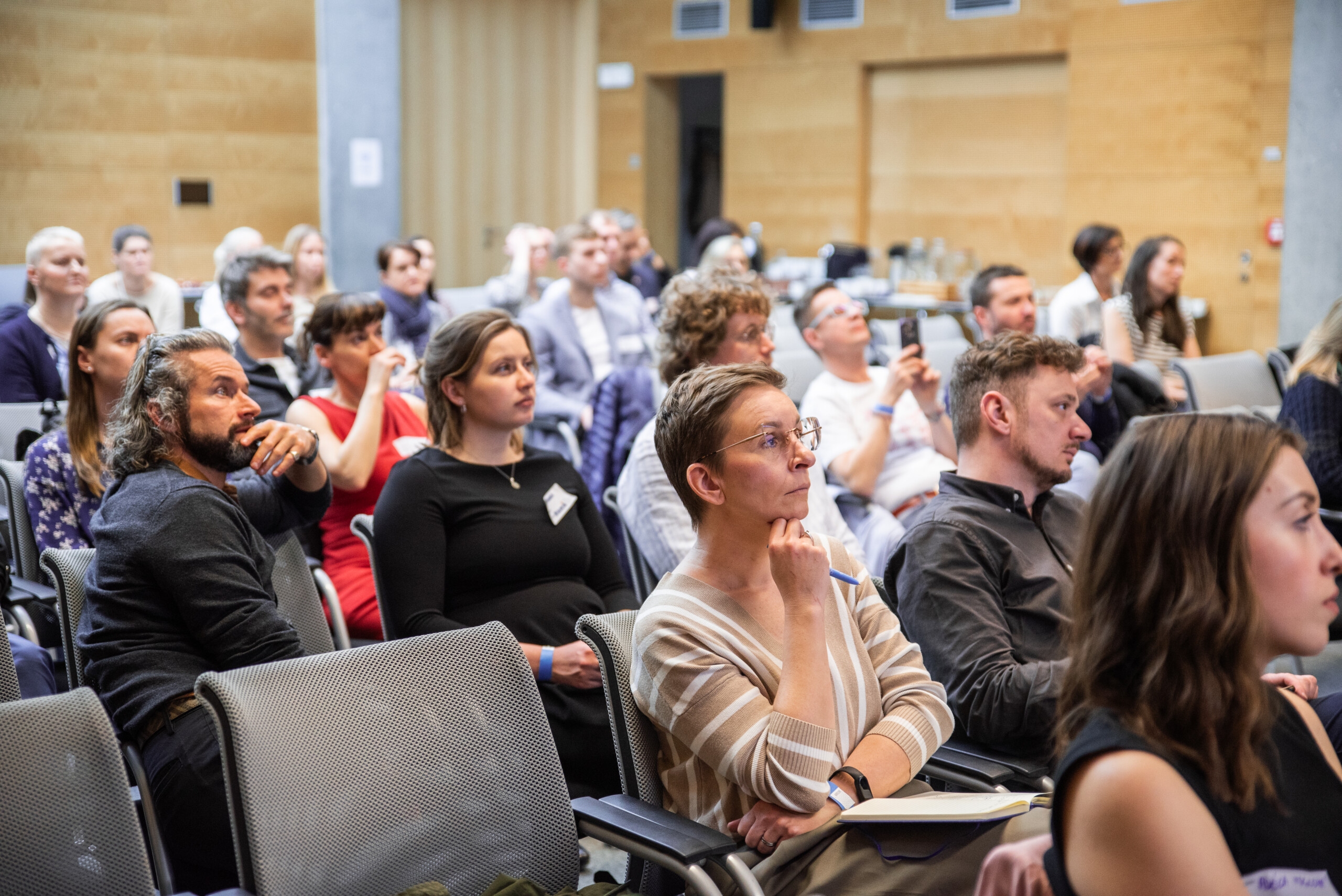LGBTQ+ Financial Sector Symposium explored the strategies for engaging with queer people within both the company and its client base
The Pride Business Forum platform, in collaboration with member company ČSOB, organized the third LGBTQ+ Financial Sector Symposium on Thursday, April 5, 2024. The event took place in the impressive premises of ČSOB in Prague-Radlice.

Pavel Šubrt: the growing trend of supplier diversity
Pavel Šubrt, founder of the East Meets West network of LGBTQ+ businesspeople in Central and Eastern Europe and the European LGBTQ+ Chamber of Commerce, opened the meeting of professionals from the financial sector, marketing, consulting and related fields. Pavel spoke about the power of pink money, i.e. the economic impact of LGBTQ+ inclusion. He mentioned six areas in which pink money has a significant impact: aside from the purchasing power of Pride festival attendees and the monetary influx within the tourism sector, he also mentioned equal marriage, the state economy (which sustains a 2% GDP loss without LGBTQ+ inclusion), inclusion of LGBTQ+ employees in the workplace and supply chains.
Pavel emphasized ‘supplier diversity’ as a proactive strategy entailing the deliberate selection of suppliers from marginalized demographics, including companies owned by LGBTQ+ individuals, women or ethnic minorities. This approach serves to bolster the advancement of LGBTQ+ entrepreneurs and elevate them as role models. “By showcasing their success, others within the LGBTQ+ community and beyond will perceive that being openly LGBTQ+ in business is viable. It conveys a message to both the LGBTQ+ community and the broader public,” he explained. Pavel noted that in Europe, the demand for supplier diversity is becoming huge.
Panel discussion: the economic benefits of diversity within the company
The panel discussion on the economic benefits of diversity within the company featured Klára Černá from ČSOB, Martina Kučová from PwC and Jana Tikalová from OPIM. The focus on diversity at ČSOB began in 2018, initially with initiatives such as flexible working hours and home office arrangements aimed at encouraging parents of young children to re-enter the workforce sooner. Over time, the DEI strategy expanded to encompass various demographics, including different age groups, LGBTQ+ people, and people with disabilities. “Today, no one disputes the benefits of diversity. We’ve observed that diverse teams are better equipped to address customer needs, more perspectives encourage innovation,” remarked Klára Černá. She further emphasized that fostering psychological safety within the workplace cultivates employee loyalty.
PwC’s journey towards embracing diversity began in 2014 out of necessity for new talent. “Due to demographic shifts, we were facing a shortage of graduates. It became clear that we needed to become more attractive an employer and appeal to entirely new groups,” explained Martina Kučová. She stressed, however, that mere non-discrimination is insufficient because employees from minor groups expect more than being merely tolerated. Companies must openly address diversity issues and provide platforms for employee dialogue.
Jana Tikalová reminded that flexibility-related topics have been resonating in the labour market for the last decade and emphasized their pivotal role in fostering an inclusive work environment. “Today’s younger generation seeks out companies committed to diversity and sustainability. They inquire about these aspects during job interviews, leaving hiring teams sometimes uncertain how to respond,” she noted.
Panel discussion: ads and marketing communications aimed at LGBTQ+ people
Tereza Košťálková from the VML agency and Barbora Kožíšková from Vodafone discussed the representation of LGBTQ+ people in marketing campaigns. Recent research conducted by WPP in the UK, US and Canadian markets revealed that 60% of the consumer public who do not identify as queer seek out queer content. While data specific to the Czech Republic is unavailable, Tereza Košťálková suggested that the trend is likely similar.
Barbora Kožíšková highlighted that Vodafone’s year-round communication on queer topics pays off. “It is not enough to publish one post on LinkedIn and happily tick off an accomplishment,” she asserted, emphasizing the importance of sustained communication, which also fosters a positive internal message within the company. Tereza Košťálková also pointed out the significance of consistency and longevity in addressing LGBTQ+ topics, as they contribute to the authenticity of the brand. A single social media post during Prague Pride week, she argued, is insufficient to resonate with the target audience. She also mentioned the importance of a casual representation of LGBTQ+ people in communication, which is more essential than a single TV spot with queer protagonists. Barbora Kožíšková added: “We’ve phased out the portrayal of happy families of a mum and a dad with two children in our ads. Following the airing of a TV spot featuring a divorced family, we received thank-you letters from viewers.”
Queer-friendly payment cards
Jakub Komenda from MONETA Money Bank presented the Pride payment card, which the bank launched last year during the Prague Pride festival in August. To date, 14,000 clients have applied for the card adorned with a rainbow design, and the number of new bank accounts opened during Prague Pride week surged by 250%. Moreover, 80,000 individuals have opted to customize the appearance of the mobile app to Pride mode. Additionally, MONETA Money Bank clients have contributed 82,000 CZK to the online LGBT+ counseling service Sbarvouven.cz while using the mobile app.
Martin Zelenka from ČSOB unveiled the preparations for a payment card that will allow transgender individuals to use their chosen name. The True Name card entails a number of challenges, including verifying the client’s identity during card issuance and integrating the chosen name into the bank’s databases, which have traditionally only accommodated officially recognized names. The launch of the card is not yet technologically complete. Nonetheless, it represents another opportunity for the company to publicly showcase its commitment to inclusion and diversity.
Click here to see how the event looked like in photos.